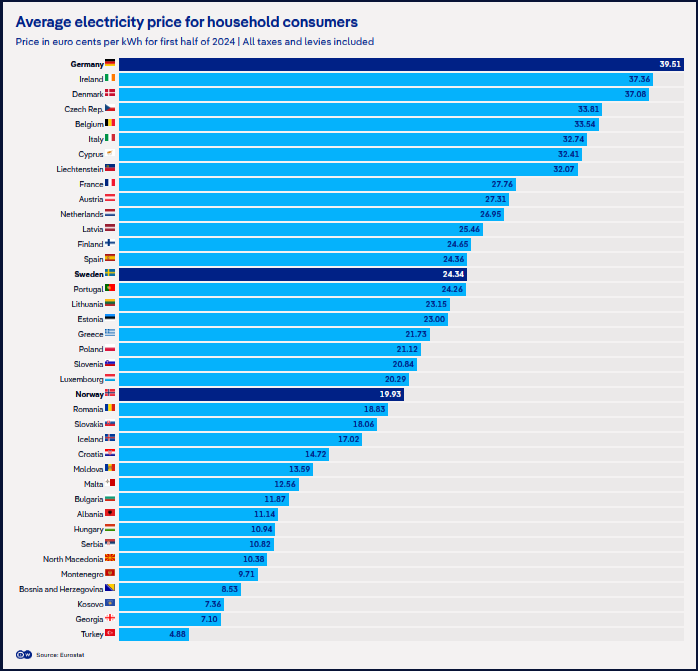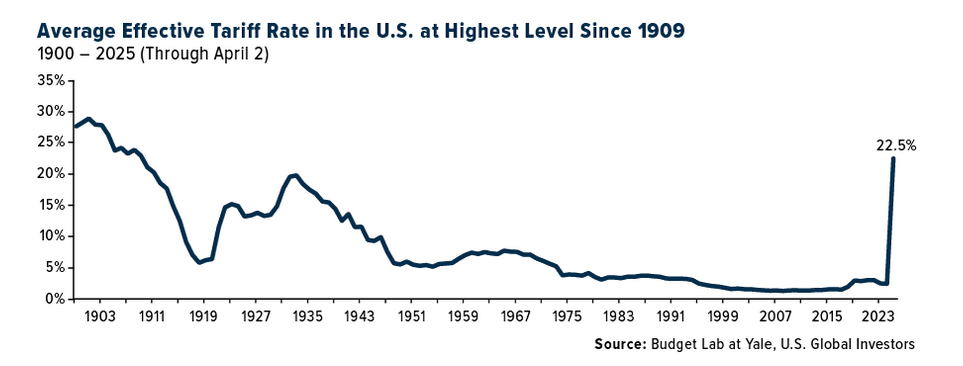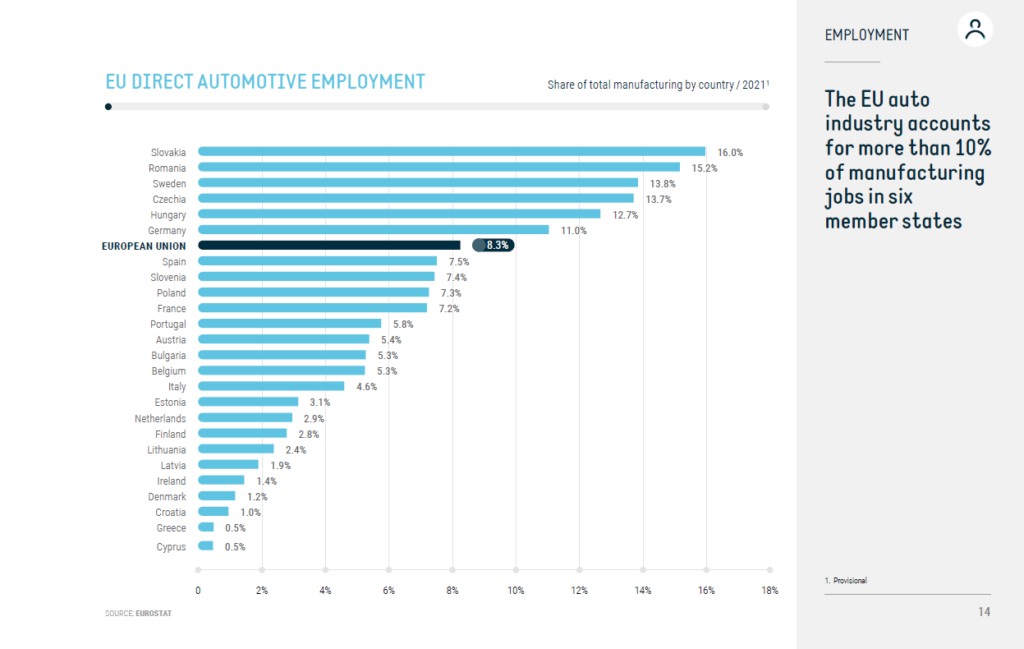Electricity prices for households in the EU vary widely across countries. Germany has the highest prices while Turkey has the lowest price per kWH in the first half of this year according to a report in Deutsche Welle. Germans pay an average of 39.15 Euro center per kWH and Turks pay just 4.88 Euro center per kWH as the chart below shows. Germany’s Energiewende plan that was passed in 2010 and envisions a country heavily dependent renewable energy sources is part of the reason why electricity prices are so high in Europe’s largest economy. During winter the country’s renewable energy production becomes volatile due to reduced availability of sun and wind power.
Click to enlarge
Source: Is Germany to blame for rising electricity prices in Europe?, Deutsche Welle
Below is a brief excerpt from the article:
Renewables can add to instability
Germans have a word for a period where little or no energy can be produced because there is limited wind or sunlight: “Dunkelflaute” or “dark doldrums.”
The technical name is “anticyclonic gloom,” which doesn’t sound nearly as menacing, though experts cannot agree what exactly needs to happen to get this designation.
Even if it is a slippery term, the phenomenon is serious. With lower renewable output, other sources of electricity need to be tapped, which can lead to short-term price spikes. Sometimes this means importing it from other countries.
Right now, the dark-doldrums effect is highly relevant for prices, “but for yearly averages it does not matter much,” said Mathias Mier, an economist at the Munich-based ifo Center for Energy, Climate and Resources
“In future, it might have more impact, but it is the role of governments and markets to steer the system into directions that minimize that impacts of ‘Dunkelflaute’,” he told DW.
Germany’s transition to renewable energy sources is a cautionary tale for other countries that plan such major initiatives. While in theory renewable energy sounds good and even noble, practical issues come into play especially during winter when energy needs are the highest. It remains to be seen if high energy prices continue to hurt the German economy and the overall European economy in general.




